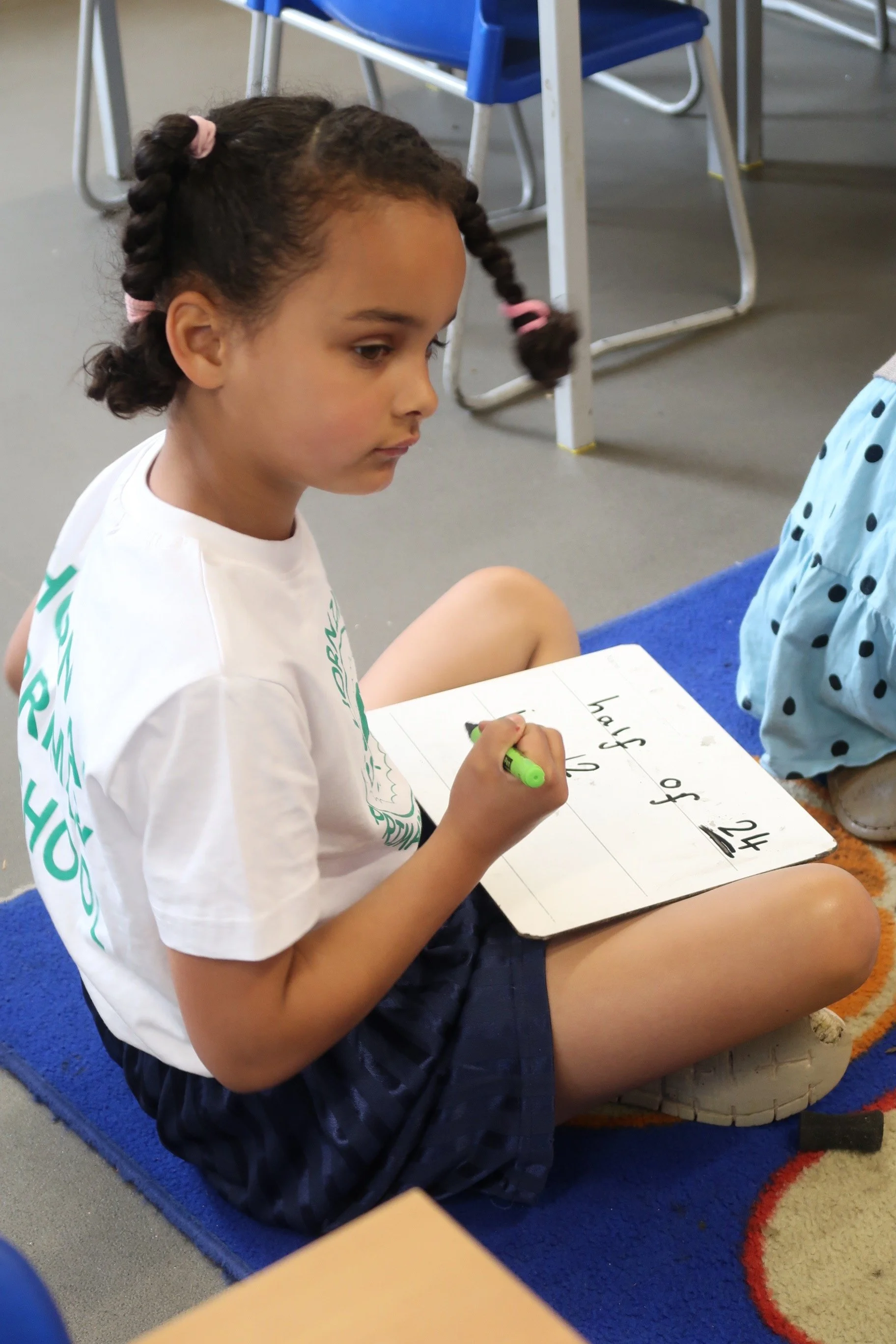Maths

At Horniman, we aim to equip our children with the mathematics skills that they will need throughout their lives.
We aim to ensure all pupils become fluent in the fundamentals of mathematics: that they develop a solid understanding of key concepts and build a firm foundation of arithmetic skills.
In addition, we encourage our children to become confident problem-solvers by offering a range of opportunities to apply their mathematical knowledge - to show their ability to work and reason systematically and logically.
We take advantage of cross-curricular links to enable children to see the real-life application of their maths skills and knowledge.
By working creatively and collaboratively, trying different strategies and methods, our children develop the perseverance and resilience necessary for increasingly complex problem-solving. By emphasising speaking and listening skills, we also encourage our children to focus on the process rather than the answer and to use precise and sophisticated mathematical language to explain and justify their solutions.
At Horniman, our curriculum is designed using the White Rose Maths Hub units interweaved with basic skills progression and targeted teaching of problem solving skills.
Basic Skills
Basic skills focuses on developing mathematical fluency of key knowledge for each unit of maths. These key skills are taught through short, repetitive sequences of counting in different forms, learning by spotting patterns and making connections to known facts, and finally applying the skills in different contexts. By mastering this skills, children are then equipped with the freedom to explore more complex mathematical concepts confidently.
Problem Solving
Problem solving skills are taught with the aim of not only preparing children to apply their mathematical skills in different contexts, but to also prepare them for challenges in their everyday life. By working creatively and collaboratively, trying different strategies and methods, our children develop the perseverance and resilience necessary for increasingly complex problem-solving. Through emphasising speaking and listening skills, we also encourage our children to focus on the process rather than the answer and to use precise and sophisticated mathematical language to explain and justify their solutions.


